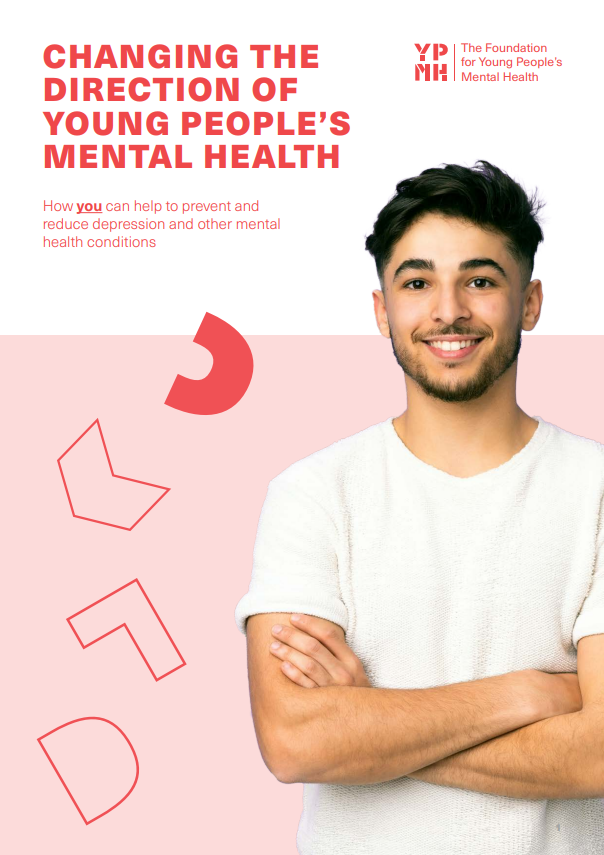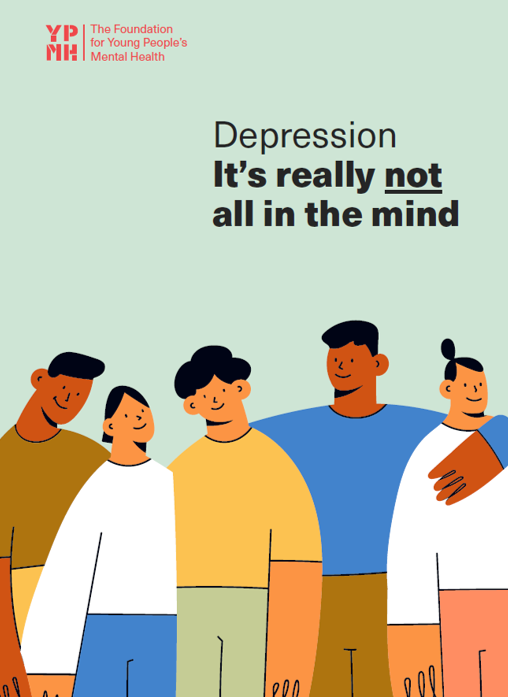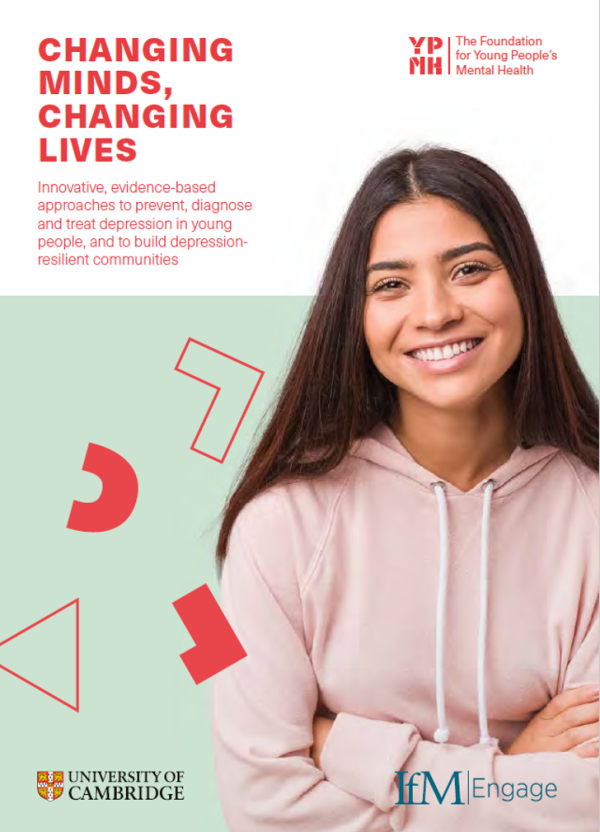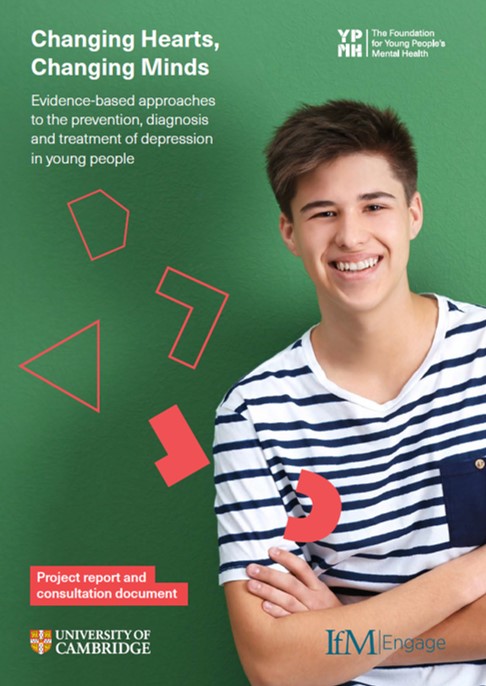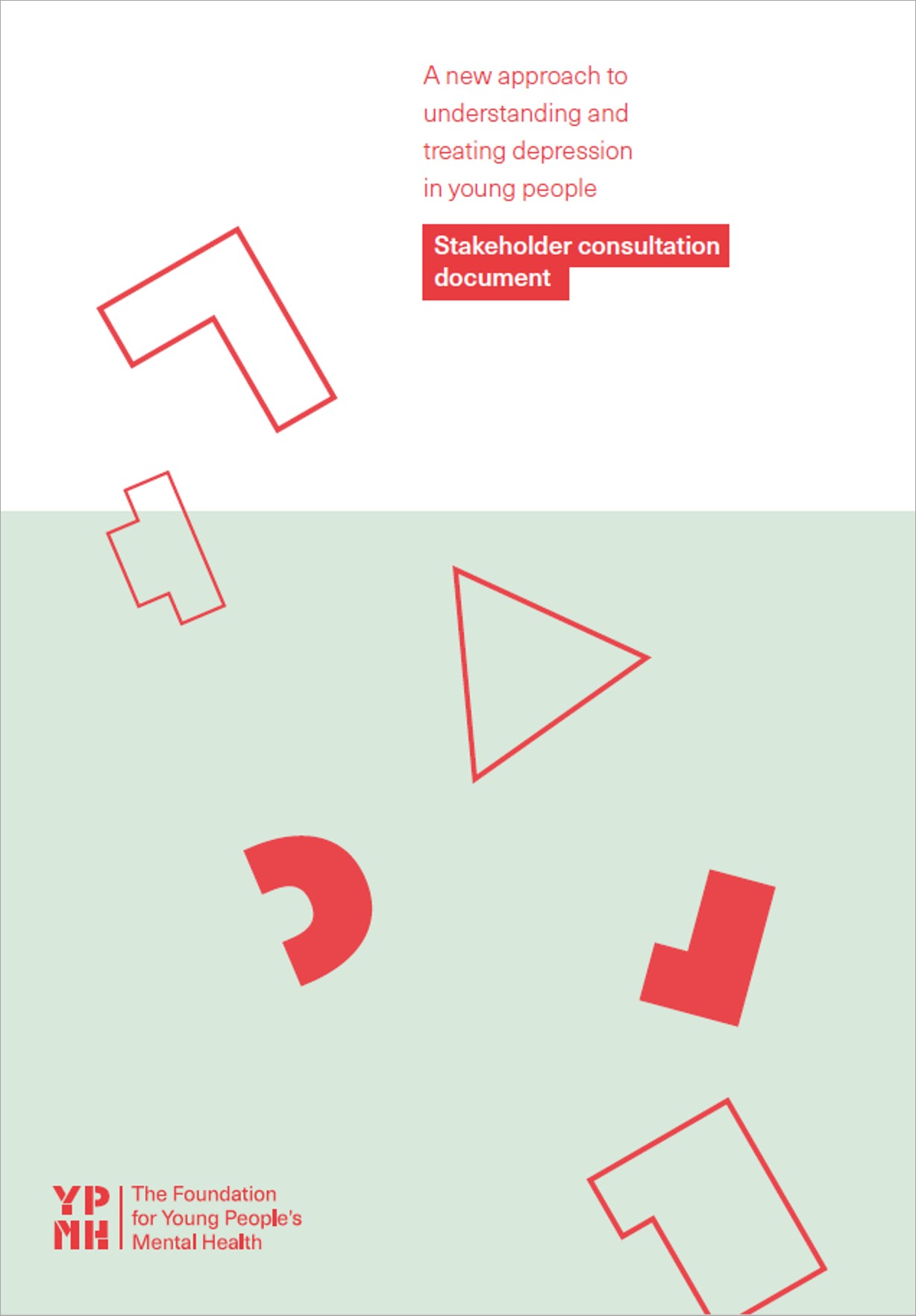Sleep and mental health
Have you ever noticed everything feels harder after a bad night’s sleep? That’s no coincidence. Around 75% of people with depression experience insomnia, while others struggle with oversleeping. There is a strong, two-way, link between sleep and mental health – poor sleep can worsen wellbeing, while poor mental health can make it harder to rest.
In this blog, we’ll explore why sleep is essential for emotional health, the two-way relationship between sleep and conditions like anxiety and depression, the science behind what happens in the brain at night, and evidence-based ways to help you sleep better.
Why sleep matters for mental health
Sleep is an important part of our daily routine – we spend roughly one-third of our lives doing it. It’s a time when the brain and body repair, process and prepare for the next day. Without enough quality rest, it becomes harder to regulate emotions, concentrate and cope with stress.
Key functions of sleep
These are just some of the ways sleep supports mental and physical wellbeing:
- Emotional regulation: balances mood and reduces stress
- Brain health: strengthens connections between neurons, clears toxins and consolidates memory
- Physical repair: supports immunity, metabolism and heart health
Chronic sleep deprivation is linked with higher risk of depression, anxiety and other mental health problems.
Your body clock and sleep cycles
Our bodies have an internal 24-hour clock – the circadian rhythm – which regulates sleep-wake cycles, hormone production (like melatonin and cortisol) and other bodily functions. The amount of sleep we need varies. Some people are naturally early risers, while others are night owls. Teenagers, for example, tend to fall asleep and wake up later than adults.
Each night we move through four stages of sleep in repeating cycles, each supporting different aspects of brain and body recovery. Deep sleep and REM (rapid eye movement) sleep are particularly important for processing emotions and memories. Deep sleep also supports creativity and problem-solving. Each stage plays a role in restoring the brain and body, and we cycle through them several times each night.
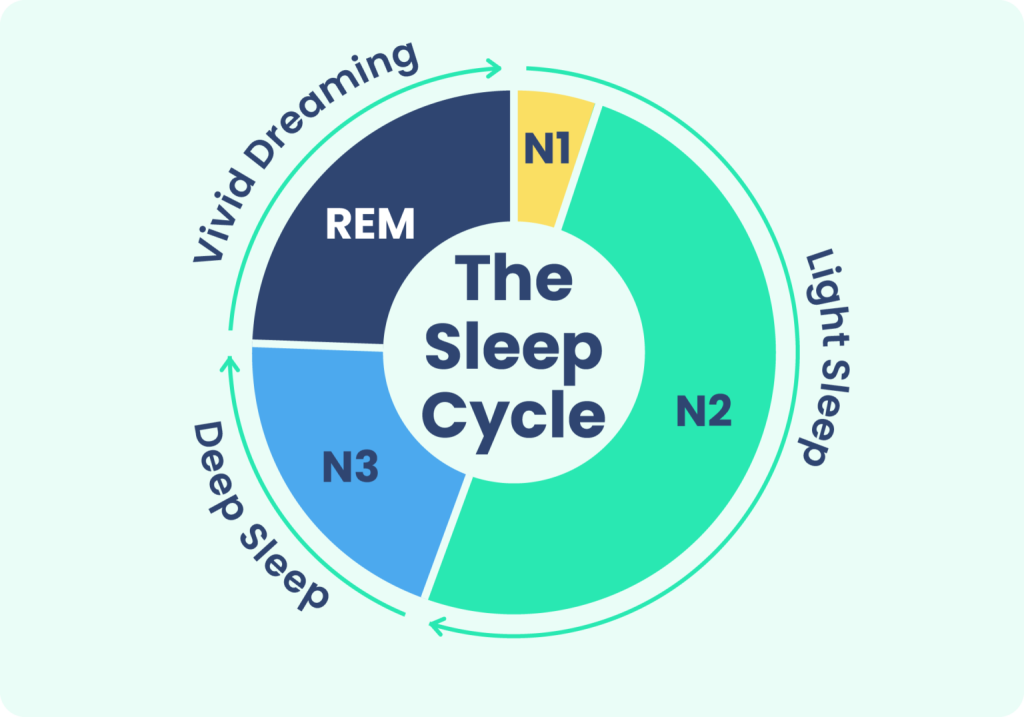
Image credit: The Sleep Doctor
How poor sleep affects mental health
We all have the odd occasion where we don’t sleep enough, due to late nights, too much caffeine or stress. While one bad night may leave us tired and irritable, long-term sleep loss changes how the brain functions, and increases the risk of both physical illness and mental health problems, such as anxiety and depression.
Good sleep supports emotional balance, concentration and resilience – while poor sleep, can:
- Heighten anxiety, low mood or irritability
- Worsen symptoms of depression or anxiety
- Encourage social withdrawal or loneliness
- Reduce concentration and decision making
- Affect relationships, school or work performance
Science spotlight: what happens in the brain
Sleep plays an important part in our physical, environmental and mental regulation. The amount of sleep we need varies from person to person and by age, but on average:
- Adults: 7-9 hours
- Teenagers: 9-10 hours
- Children: 9-13 hours
- Toddlers and babies: 12-17 hours
What happens in the brain and during sleep
- Physical effects of sleep: tissue repair, hormone release and growth
- Mental effects of sleep: improved attention, memory and orientation. Poor sleep can cause inattention and forgetfulness
- Emotional effects of sleep: sleep helps regulate mood and process emotional experiences
These systems are all closely linked to mental health and resilience.
Sleep hormones: cortisol and melatonin
- Cortisol – the body’s stress hormone – rises with poor sleep or irregular schedules, such as shift work. Persistently high cortisol can disrupt sleep further, creating a vicious cycle.
- Melatonin – produced from serotonin – regulates our sleep-wake cycles. Stress or chronic inflammation can lower melatonin levels, making it harder to fall asleep.
Psychological factors, such as lying awake at night and worrying/ruminating, also contribute to insomnia and low mood.
Four proven ways to sleep better for mental health
- Keep a regular sleep routine
Go to bed and get up at the same time every day – even on weekends! It’s just as important to go to bed at the same time each night. Consistent schedules help your body anticipate rest and balance stress hormones that affect mood.
- Optimise your sleep environment
Limit screen time before bed. Screens on phones, tablets and TVs give off blue light, which mimics daylight and suppresses melatonin, making it harder to drift off. Try reading or journalling instead.
- Make lifestyle choices that support sleep
Regular physical activity improves sleep quality by reducing stress, enhancing mood and stabilising your body clock, leading to faster sleep onset and more restorative sleep. Avoid intense exercise 30–90 minutes before bed to allow your body to relax.
Caffeine acts as a stimulant by blocking sleep-inducing receptors in the brain, meaning even an afternoon coffee can delay sleep.
Alcohol may make you feel drowsy but disrupts deep and REM sleep – the stages most vital for memory and mental health.
- Try relaxation techniques
Mindfulness, journaling and meditation are proven to calm the mind before bed. Journaling clears “mental clutter”, while mindfulness slows your heart rate and reduces cortisol. A short bedtime routine that includes these practices can prepare both body and mind for quality rest.
Conclusion
We can all benefit from improving the quality of our sleep – even small changes can have a big impact on mood, focus and resilience.
Start tonight: turn off screens 15 minutes earlier, write down tomorrow’s worries, or spend 5 minutes breathing slowly. Notice how your energy, focus and mood feel tomorrow!
Where to get help
If you need further advice on supporting yourself or a young person with their mental health, take a look at the services below that can help.
Offers confidential advice and support for young people struggling with suicidal thoughts, as well as family and friends; and information about how to make a safety plan.
Its helpline service – HOPELINE247 – is available to anybody under the age of 35 experiencing suicidal thoughts, or anybody concerned that a young person could be thinking of suicide.
Opening times:24/7 every day of the year
0800 068 4141
Text: 88247
Whatever you’re going through, you can contact the Samaritans for support. N.B. This is a listening service and does not offer advice or intervention.
Opening times: 24/7
Text: 116123
jo@samaritans.org
Digital support community and charity offering information, peer support, facilitated listening circles, mentoring and courses for parents of children with mental health difficulties

